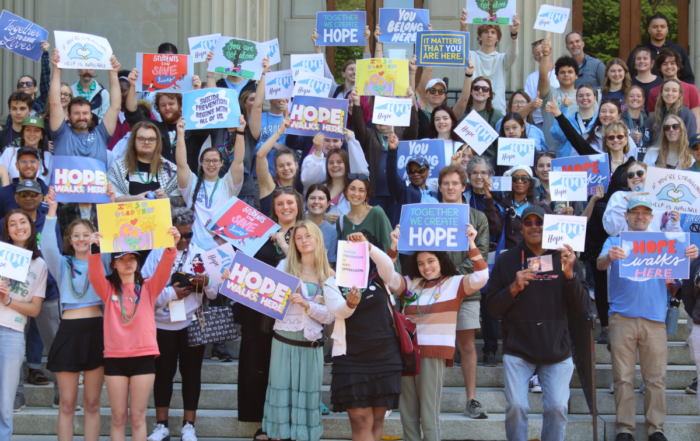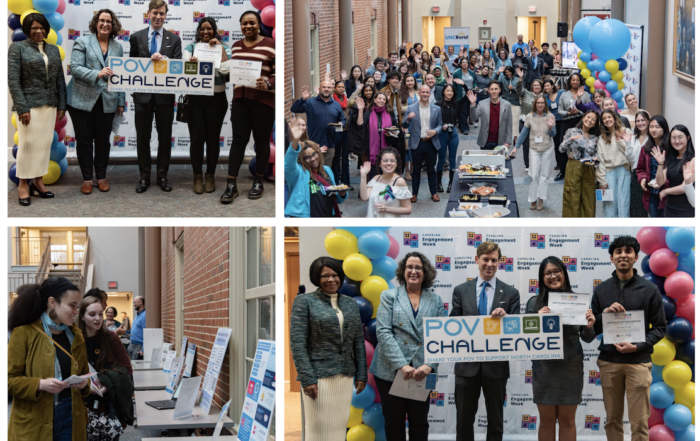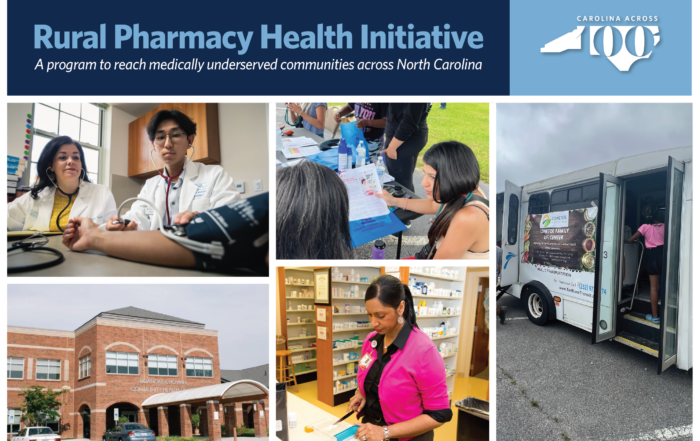Health
Campus Walk Raises Awareness for Suicide Prevention
Emily Peek, ncIMPACT Initiative
April 25, 2024
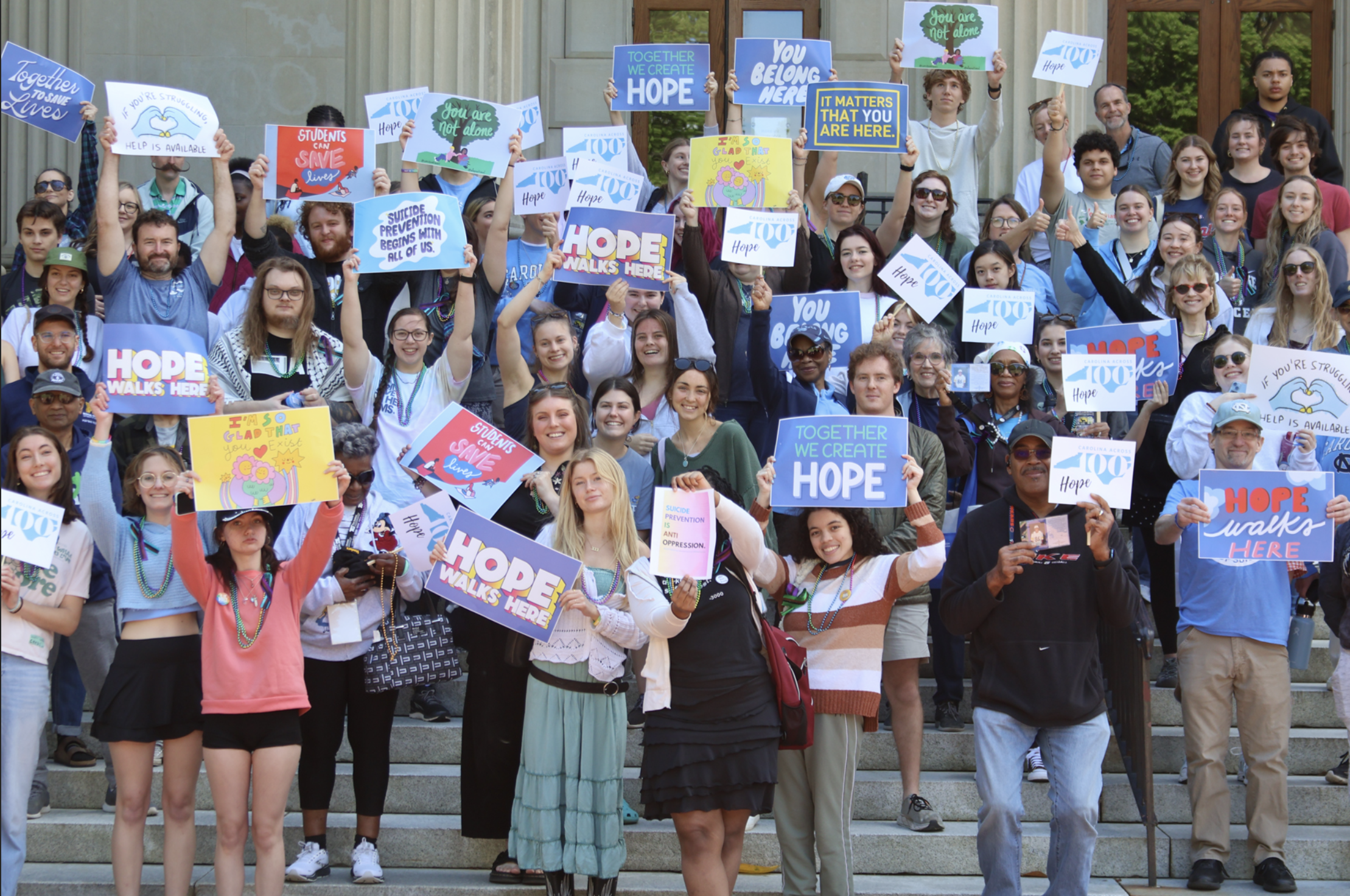
Photo credit: Peerapon “Bobby” Sujjavanich
Over 110 students, staff, family and friends from across the state gathered at UNC-Chapel Hill on April 13 to participate in the American Foundation for Suicide Prevention (AFSP) Out of Darkness Walk. The walk began with speakers sharing personal stories about their journeys and hopeful and empowering next steps after their experiences with suicide ideation or loss. The walk was part of a national series of similar events organized by AFSP.
Carolina Across 100 (CX100) formed a team as a show of support for the student-led effort and to underscore the importance of mental health resources and awareness on campus.
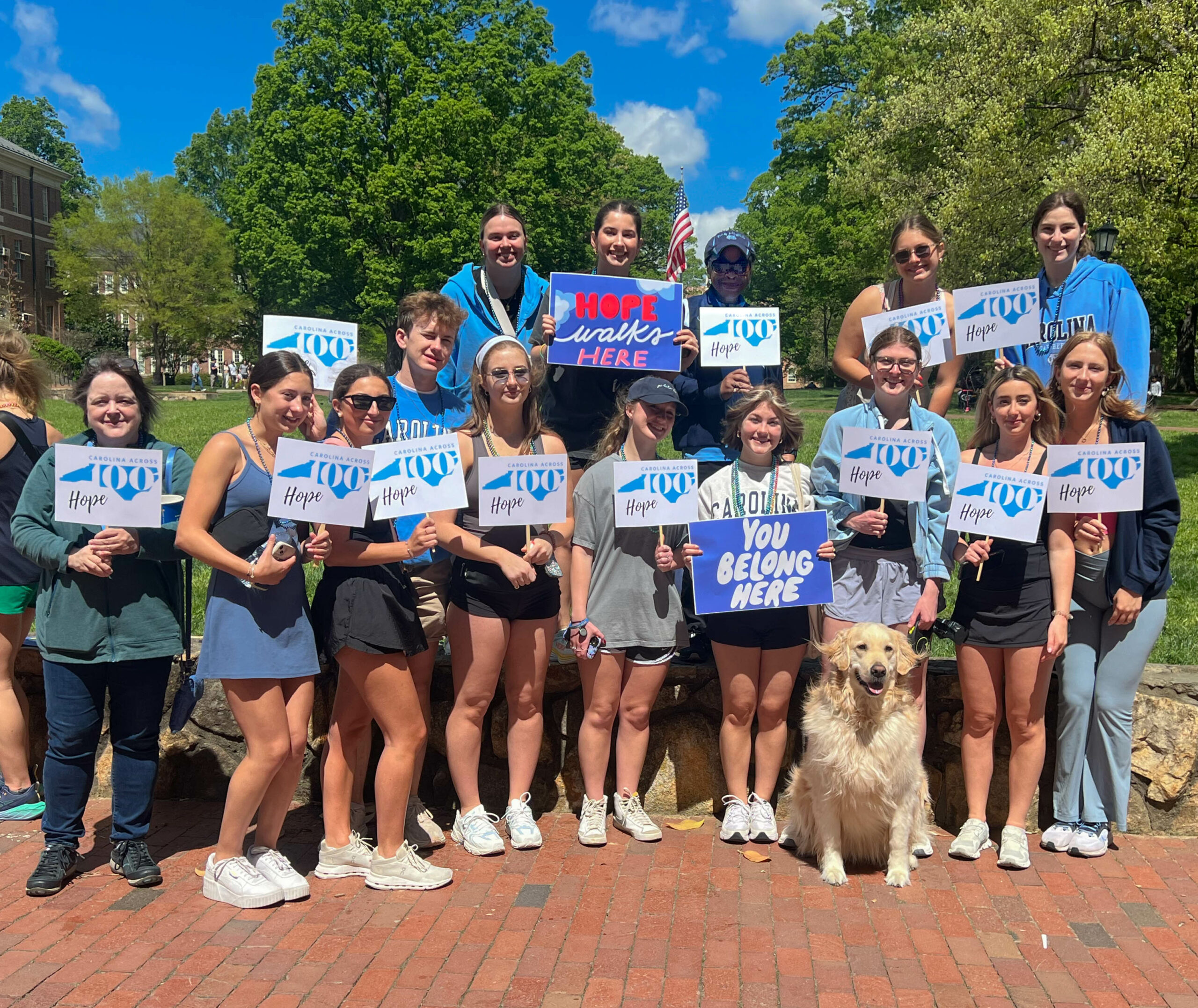
Photo credit: Carolina Across 100
Elizabeth Ogden, a junior psychology and sociology double major and walk co-chair has organized the walk for three years. Her co-chair was Jennifer Persia, who graduated from UNC-CH in 2023 and is now earning a master’s social work.
Dealing with her own mental illness led Ogden to wonder how stigma impacts the access to and quality of care others receive, and how it impacts the mental health care system. She believes that talking about suicide prevention and mental health is crucial as communities work to address the growing mental health crisis across the country.
Ogden believes that to save lives, open conversations are important. This way, students aren’t left struggling in silence, feeling scared, or not knowing how to open up and ask for support.
She hopes that starting conversations with others will create a welcoming space for people to become more comfortable talking about their feelings.
“I hope that this walk continues to spark hope and conversation among students across UNC and beyond,” Ogden said.
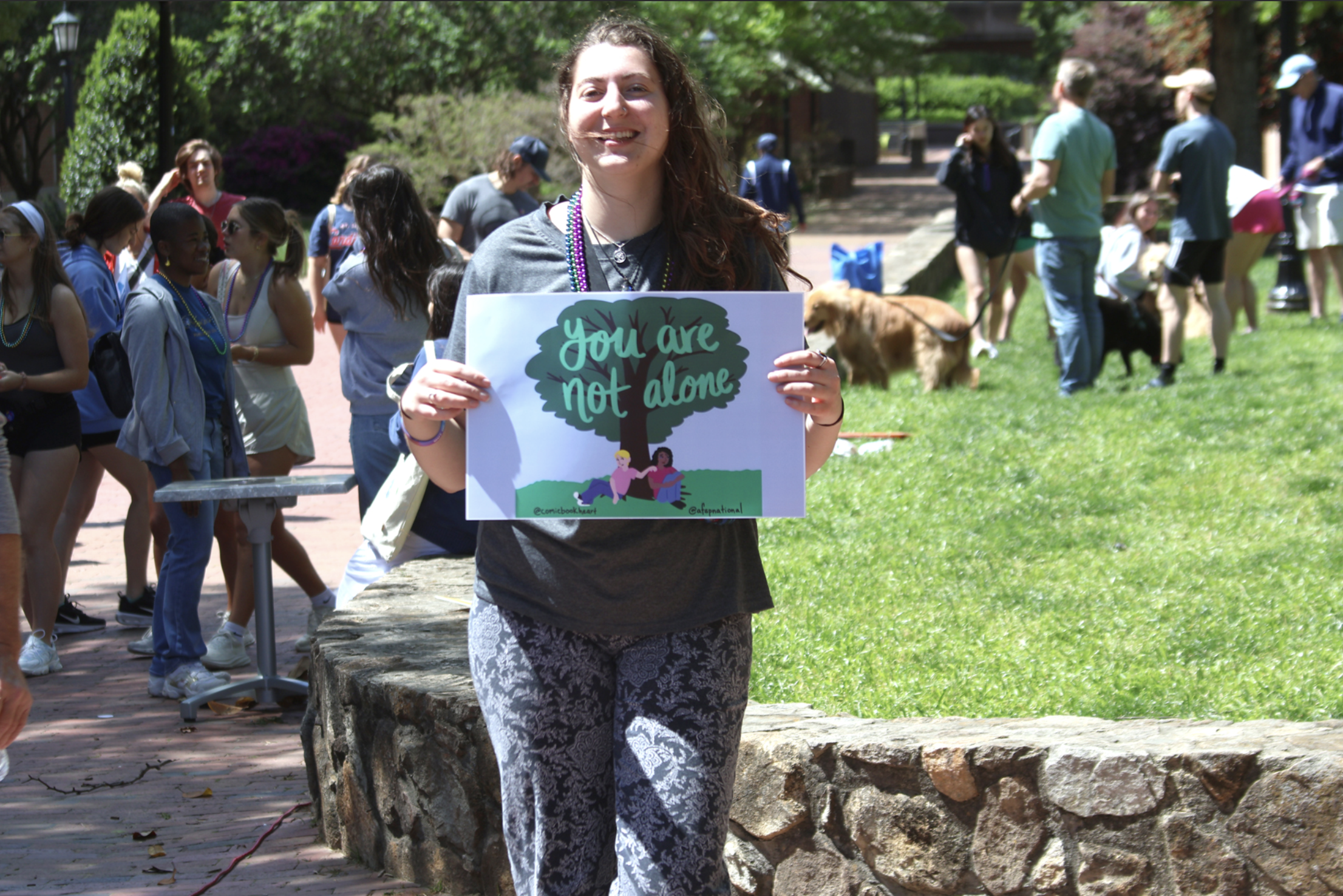
Photo credit: Peerapon “Bobby” Sujjavanich
One speaker was Anne Moss Rogers, who lost her son, Charles, to addiction and suicide on June 5, 2015.
After Charles’ death, Rogers became a motivational speaker to empower through education, and to provide life saving strategies and emotionally healthy coping skills. Her website says, “As talented and funny as Charles was, letting other people know they matter was his greatest gift. And now that’s the legacy she carries forward in her son’s memory.”
As the event began, students and campus leaders began filling up the front steps of Wilson Library. Mary Gilbert, a junior medical anthropology and public policy double major at UNC-Chapel Hill, attended the walk. She said it was “wonderful” to see students and the campus community come together to show compassion and raise awareness.
“The most powerful moments during the event were definitely when the speakers addressed the crowd, Gilbert said. “Through their personal stories, they each spoke with such vigor about the importance of suicide prevention.”
Gilbert said it was powerful to hear from speakers who had been through a great deal of grief yet were working to save lives.
Promoting suicide prevention awareness across colleges campuses is extremely important, Gilbert said. While professors generally value student mental health, the AFSP Out of the Darkness Walk helps the whole campus show support for suicide prevention resources and for those struggling.
Gilbert said she would “absolutely” attend the walk again, and that overall, the spirit of the groups makes similar events something to look forward to.
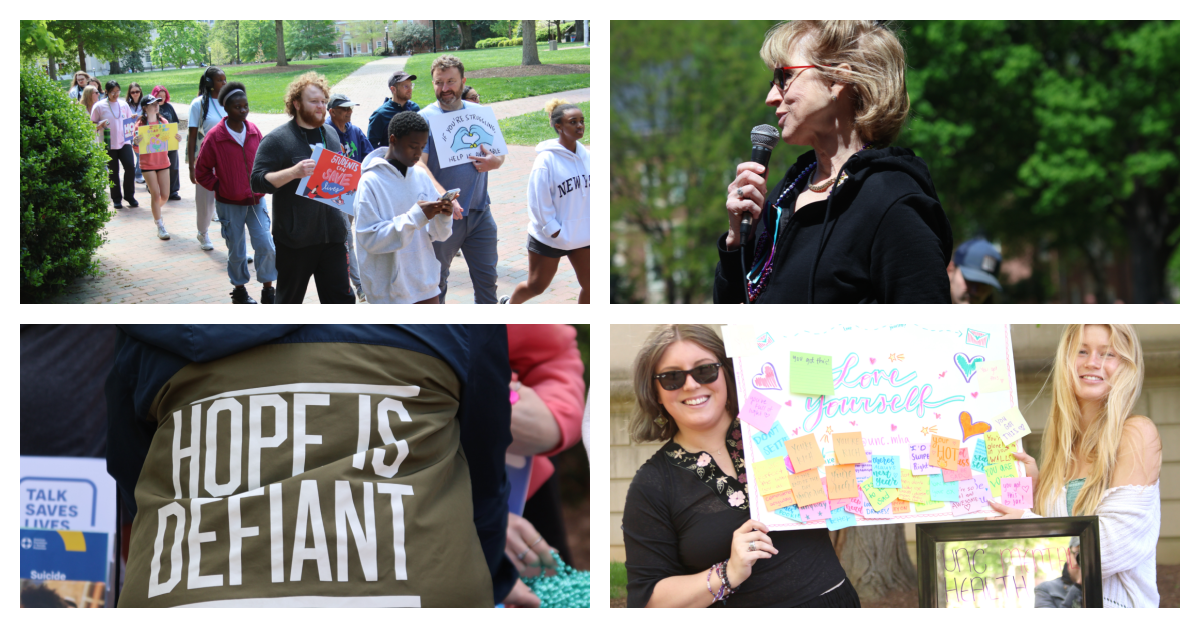
Photo credit: Peerapon “Bobby” Sujjavanich
“We’re so proud of the student organizers who led the Out of the Darkness Walk,” said Professor Anita Brown-Graham, director of the ncIMPACT Initiative, coordinating Carolina Across 100. “Meaningful change requires leadership and the efforts of Elizabeth and Jennifer have sparked a growing response here at UNC.”
Building Momentum
In the weeks leading up to the walk, UNC-Chapel Hill’s student newspaper, The Daily Tar Heel (DTH), published the Mental Health Collaborative, a project created in collaboration with nine other North Carolina college newsrooms in an effort to cover community mental health issues. Collaborators included The East Carolinian, The Niner Times, The Seahawk and Technician, The A&T Register, The Old Gold & Black, The Pendulum and The Duke Chronicle. According to the introduction article written by the DTH Editor Emmy Martin, titled “Welcome to the Mental Health Collaborative,” the project serves as a call to action to create a future where no one suffers in silence.
Campus resources like Counseling and Psychological Services (CAPs) continue to build. The University is also extending its reach across the state to help communities prevent suicide. Carolina Across 100’s second program, “Our State, Our Wellbeing,” is working to improve suicide prevention efforts across North Carolina by partnering with 15 teams, made up of leaders from 24 counties.
This 12-month program will be wrapping up in June 2024, but the teams have sustainability plans to build on the momentum they have created. Attend the Statewide Summit on Suicide Prevention on June 13 at the UNC Friday Center to learn from the work of “Our State, Our Wellbeing” team members as they bring communities together to share new connections and resources.
Carolina Across 100 is a five-year Carolina initiative housed at the School of Government’s ncIMPACT Initiative. This pan-University effort, guided by the Carolina Engagement Council, will form meaningful partnerships with communities in all 100 North Carolina counties to respond to challenges stemming from or exacerbated by COVID-19. “Our State, Our Work” is the first program of Carolina Across 100, connecting young adults to living wage employment opportunities. “Our State, Our Wellbeing” is the second program, focused on improving mental health and reducing suicide in North Carolina.


